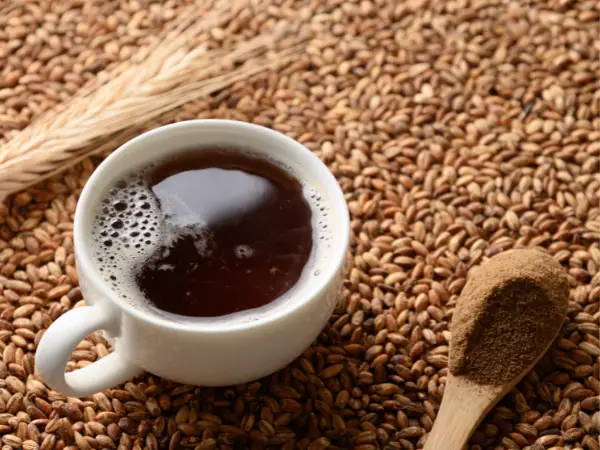Many people enjoy coffee for its rich taste and energy boost. But have you ever noticed a surprising side effect?
Both regular and decaf coffee can make you feel the urge to poop. What is it about coffee that triggers this reaction? Is it just the caffeine, or is there more to the story?
Understanding how these elements work can help you enjoy your cup of joe without worry. This post will explore why both regular and decaf coffee can lead to bathroom trips.
How Regular Coffee Stimulates Digestion
Coffee is a beloved beverage worldwide. Many enjoy it for its rich taste and energizing effects. It can also stimulate digestion. Both regular and decaf coffee can trigger bowel movements.
Caffeine’s Impact On The Colon
When you drink coffee, caffeine triggers muscle contractions in the colon, speeding up digestion. This reaction happens because caffeine stimulates the release of certain hormones. These hormones promote activity in the digestive tract.
Here are some key points about caffeine’s impact:
- Caffeine enhances bowel movement by stimulating intestinal contractions.
- It increases the production of stomach acid, aiding digestion.
- Caffeine can lead to a feeling of urgency to use the bathroom.
Research shows that caffeine can reduce transit time in the colon. This means food moves through your digestive system faster.
Increased Peristalsis: What It Means
Peristalsis is the wave-like muscle contractions that move food through the digestive tract. Regular coffee can enhance this process. The caffeine in coffee increases the rate of peristalsis. This results in quicker digestion and often leads to the need for a bathroom break.
Why does this happen? Here are some reasons:
- Caffeine stimulates nerve endings in the intestines.
- It helps push waste through the colon efficiently.
- Increased peristalsis can lead to a feeling of fullness.
Studies show that people who consume coffee regularly often experience more frequent bowel movements. This effect is not limited to caffeine alone. Even decaf coffee can stimulate digestion, but regular coffee typically has a stronger effect.
Speeding Up The Digestive Process
Regular coffee does more than just wake you up. It also speeds up the digestive process. This is due to the combined effects of caffeine and other compounds in coffee. Caffeine reduces transit time, making digestion quicker.
Here are some ways coffee speeds up digestion:
- Caffeine increases the secretion of gastric acid.
- It boosts bile production, which helps digest fats.
- Coffee enhances gut motility, leading to faster elimination.
Many people notice the urge to go to the bathroom shortly after drinking coffee. This quick response is a sign of its effectiveness. Whether you drink regular or decaf coffee, the digestive benefits are clear.

Beyond Caffeine: Other Compounds In Coffee And Their Effects
his section will explore how certain components, beyond caffeine, influence bowel movements.
Chlorogenic Acid: Its Role In Stimulating Gut Activity
Chlorogenic acid is a key compound in coffee. It is a natural antioxidant found in both regular and decaf varieties. This acid plays an important role in gut health. Here’s how it works:
- Promotes the production of stomach acid.
- Enhances digestion and nutrient absorption.
- Stimulates the release of bile, aiding fat digestion.
Research shows that chlorogenic acid can increase gut motility. This means it helps food move through the intestines faster. Here’s a brief overview of its benefits:
| Benefit | Effect |
|---|---|
| Increased Stomach Acid | Improves digestion |
| Bile Production | Aids in fat digestion |
| Gut Motility | Speeds up bowel movements |
Consuming coffee rich in chlorogenic acid can lead to more frequent bowel movements. This is true for both regular and decaf coffee.
N-Alkanoyl-5-Hydroxytryptamide: A Powerful Stimulant
N-alkanoyl-5-hydroxytryptamide is another compound in coffee that affects digestion. It is less known but has significant effects. This compound acts as a stimulant in the digestive system. Here’s what it does:
- Increases intestinal contractions.
- Enhances gut motility.
- Stimulates digestive enzymes.
Studies show that N-alkanoyl-5-hydroxytryptamide can boost the urge to poop. It works by:
- Activating nerve signals in the intestines.
- Increasing the speed of food passage.
- Supporting overall digestive health.
This compound is found in both caffeinated and decaffeinated coffee. Its presence contributes to the laxative effects coffee is known for. Drinking coffee can stimulate bowel movements thanks to this powerful compound.
Coffee’s Acidity And Its Impact
Coffee’s natural acidity also plays a role in digestion. The acidity can stimulate the stomach. This leads to increased gastric juice production. Here’s how coffee’s acidity impacts the digestive process:
- Encourages stomach emptying.
- Stimulates bowel contractions.
- Can cause discomfort for some drinkers.
Acidic compounds in coffee include:
- Chlorogenic acid
- Caffeic acid
- Citric acid
These acids can cause a mild laxative effect. They may irritate the stomach lining, leading to increased urgency.

The Decaf Mystery: Why It Can Still Affect Your Gut
Some wonder why decaf can still make them poop. The mystery lies in the compounds present in both types of coffee.
Trace Amounts Of Caffeine In Decaf
Decaf coffee is not completely caffeine-free. Most decaffeinated coffee still contains small amounts of caffeine. The process of decaffeination does not remove all caffeine. Studies show that decaf can have about 1 to 2% of the original caffeine amount. This means:
- A standard 8 oz cup of decaf can contain 2 to 15 mg of caffeine.
- Regular coffee contains 95 mg or more in the same serving.
Even small doses of caffeine can stimulate the digestive system. It can lead to increased bowel movements.
Here’s a quick table summarizing caffeine levels:
| Type of Coffee | Caffeine Content (per 8 oz) |
|---|---|
| Regular Coffee | 95 mg or more |
| Decaf Coffee | 2 to 15 mg |
Other Stimulants Present In Decaf
Decaf coffee contains more than just caffeine. It has other compounds that can influence the gut. These include:
- Chlorogenic acid
- Caffeic acid
- Trigonelline
These compounds can also stimulate digestion. They may increase gastric acid production. This can lead to quicker digestion and bowel movements.
The Placebo Effect: Mind-gut Connection
The placebo effect can be strong, especially with coffee. Many people associate coffee with energy and alertness. This belief can affect their bodily reactions.
When someone drinks decaf, their brain may still expect effects. This expectation can lead to a physical reaction. The gut may respond as though it is receiving caffeine.
Here are some key points about the mind-gut connection:
- Expectations shape physical reactions.
- Beliefs about coffee can trigger gut responses.
- Mind-body interaction is significant in digestion.
Understanding this connection can help explain why decaf coffee still has effects. It’s not just about what is in the cup. It’s also about what the mind thinks is happening.

The Role Of Stomach Acid And Hormones
The body’s response to coffee involves stomach acid and hormones. These factors play a big role in digestion. Understanding them can help explain the effects coffee has on our bodies.
Gastric Acid Production And Its Effects
Gastric acid is crucial for digestion. The stomach produces this acid to break down food. Coffee stimulates gastric acid production, which can speed up the digestive process. Here are some key points:
- Coffee increases acidity in the stomach.
- This can enhance digestion and nutrient absorption.
- The increased acid can lead to quicker bowel movements.
Research shows that coffee, both regular and decaf, raises gastric acid levels. This leads to more efficient digestion. Here’s a simple table showing the effects:
| Coffee Type | Gastric Acid Increase | Effect on Digestion |
|---|---|---|
| Regular Coffee | High | Speeds up digestion |
| Decaf Coffee | Moderate | Still aids digestion |
Both types of coffee can increase gastric acid. This explains why many feel the urge to poop after drinking coffee.
The Release Of Gastrin And Its Function
Gastrin is a hormone that plays an important role in digestion. Coffee triggers the release of gastrin. This hormone helps to increase gastric acid production. Here’s how it works:
- Gastrin signals the stomach to produce more acid.
- It helps the stomach digest food faster.
- Higher acid levels can lead to quicker bowel movements.
Research shows that drinking coffee raises gastrin levels significantly. This occurs in both regular and decaf coffee drinkers. The effects can be noticeable:
- Faster digestion of food.
- Increased urgency to poop.
- Improved nutrient absorption.
The release of gastrin is a key factor in how coffee affects the digestive system. It contributes to the feeling of needing to go to the bathroom.
Hormone-driven Bowel Movements
Hormones also influence bowel movements. Coffee consumption triggers various hormonal responses. These responses help regulate digestive functions. Here are some important hormones involved:
- Cholecystokinin (CCK): Promotes digestion and bile release.
- Serotonin: Affects gut motility and can increase urge to poop.
- Insulin: Affects digestion and can impact bowel activity.
Coffee can stimulate the release of these hormones. This stimulation helps in moving food through the intestines more quickly. As a result, people may feel the need to poop sooner. Here’s a brief overview:
| Hormone | Function | Effect on Bowel Movements |
|---|---|---|
| CCK | Stimulates bile release | Speeds up digestion |
| Serotonin | Regulates gut motility | Increases urgency |
| Insulin | Helps manage blood sugar | Affects digestive speed |
Understanding these hormones helps clarify why coffee can lead to bowel movements. The interaction of hormones and gastric acid creates a powerful digestive response.
Individual Variability: Why Coffee Affects People Differently
Many people drink coffee to boost energy. But why does coffee affect some more than others? Factors like genetics, health conditions, and lifestyle play significant roles.
Sensitivity To Coffee Compounds
Not everyone reacts the same way to coffee. Some people are very sensitive to coffee compounds. These compounds include caffeine, chlorogenic acids, and various oils.
Here are a few reasons why sensitivity varies:
- Caffeine sensitivity: Some people metabolize caffeine slowly. This can cause stronger effects.
- Acid sensitivity: Coffee is acidic. For some, this can lead to discomfort.
- Other compounds: Certain compounds in coffee can stimulate the gut. This leads to increased bowel activity.
Studies show that coffee can increase gut motility. This is the movement of food through the digestive system. For sensitive individuals, even decaf coffee can trigger this response.
Existing Digestive Conditions
Digestive health can also influence how coffee affects you. Conditions like IBS, acid reflux, and others may amplify coffee’s impact. These issues can heighten sensitivity and lead to discomfort.
Consider the following points:
- IBS: People with IBS often experience stronger reactions to coffee.
- Acid reflux: Coffee can worsen symptoms, causing heartburn or discomfort.
- Other conditions: Those with digestive disorders may find coffee aggravating.
Research indicates that coffee can stimulate gastric acid production. This can lead to faster digestion, but for some, it can cause pain or urgency.

